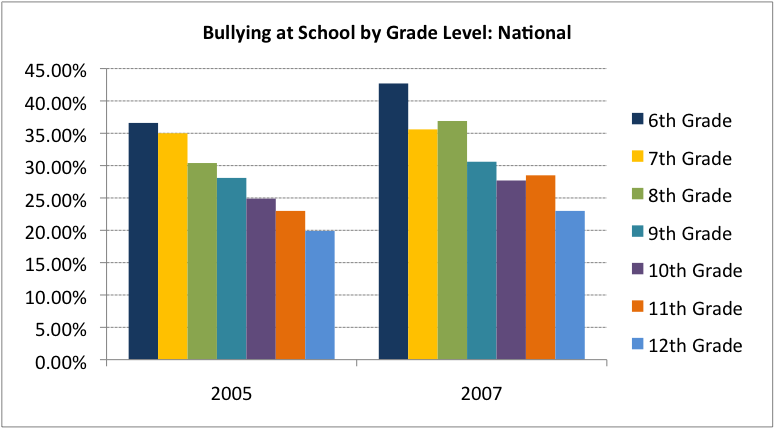When Your Child or Grandchild is Bullied
Disclaimer: I was compensated for this post but all thoughts, comments and opinions are my own.
During the years I was a teacher I saw many examples of bullying. I remember a young girl who was bullied because she had head lice and a young boy who was smaller than the other students being stuffed in trash cans by larger boys. I did the best I could as a teacher to make sure the bullying stopped, but just because I didn’t see them do it again, doesn’t mean it didn’t happen.
It is the school’s responsibility to stop bullying but bullies can be sneaky and the child who is being bullied may not always report it. If it happens on-line or at a sporting event, there may not be any adults watching. And even if they are watching they still may not see it. During a girl’s high school basketball game I attended several of the players were secretly pinching their opponents but the referees were unaware.
When It’s Your Child or Grandchild
When your child or grandchild is bullied your first response is probably not your best response; at least that’s the way it works for me. If someone messes with my grandbabies….Nana wants to go mess with them (as in talk to their parents) and it’s not my place to do that. Their mom and dad can and should handle it however they see fit.
Even if your child or grandchild hasn’t told you they are being bullied there is a good chance they either have experienced it themselves or know someone who has (graph courtesy stopbullying.gov). Did you know that according to the National Education Association every day, more than 160,000 kids stay home from school because they are afraid of being bullied?
What if they don’t tell you….
If you think your child or grandchild tells you everything that goes on at school there is a good chance you are wrong. My husband and I raised 5 children and now that they are grown they confess things that they did, or things that happened to them, that I knew nothing about.
The first thing parents and grandparents can and should do is have a talk about bullying with their child, and it’s better to have the talk sooner rather than later; bullying can start very young. However, talking about it once isn’t enough. Keep bringing it up each and every school year and occasionally during the school year.
Younger children will ask questions and if they know you are willing to answer them hopefully they will come to you if they have problems. But if they won’t talk to you don’t assume that everything is okay. Here’s a good article that can give you ideas about what to watch for 19 Signs Your Child is Being Bullied
Generally, children who are bullied have one or more of the following risk factors:
- Are perceived by their peers as being different, like being overweight or underweight, wearing glasses or different clothing, being the new kid at school, or not being able to afford what kids consider “cool”
- Are thought of by peers as weak or unable to defend themselves
- Are depressed, anxious, or have low self esteem
- Are less popular than others and have few friends
- Don’t get along well with others, or are seen as annoying or provoking, or pick on others for attention
There is a Solution for every Problem
When I was in first grade a girl in my classroom kept poking and hitting me when the teacher wasn’t looking. My mother’s advice was to hit her back. “If you will do it once she’ll stop,” my mother said. I know she meant well but it didn’t work. I couldn’t bring myself to hit her and so I just stopped telling my mother when it happened. Thankfully the next year we were in different classrooms and I didn’t have to be around her anymore.
Parents and grandparents have to be proactive rather than reactive when it comes to bullying. We are not always going to be present and our children need coping skills. One of the best articles I have read about teaching your children to handle bullies is Bully Proof Your Child by Parents.com
If The Bullying Doesn’t Stop
There are bullies who are so persistent and so vicious that no matter what you try nothing seems to work. If this happens to your child or grandchild don’t sit by and feel helpless.
ARAG Legal insurance covers your fees of working with a network attorney — much like health insurance covers the cost of visiting a doctor. They can help you find the right attorney to deal with bullying or whatever you are going through.
They also have helpful articles about lots of different problems we encounter throughout life. Here is a great article on Cyberbullying.
My Advice
Communicate and keep communicating with your child or grandchild about bullying.
Read all the information and articles you can find to make yourself more aware.
Go through the proper channels if you have to seek help but don’t stop searching for a solution!
Talk to the folks at ARAG about how they can help you!






